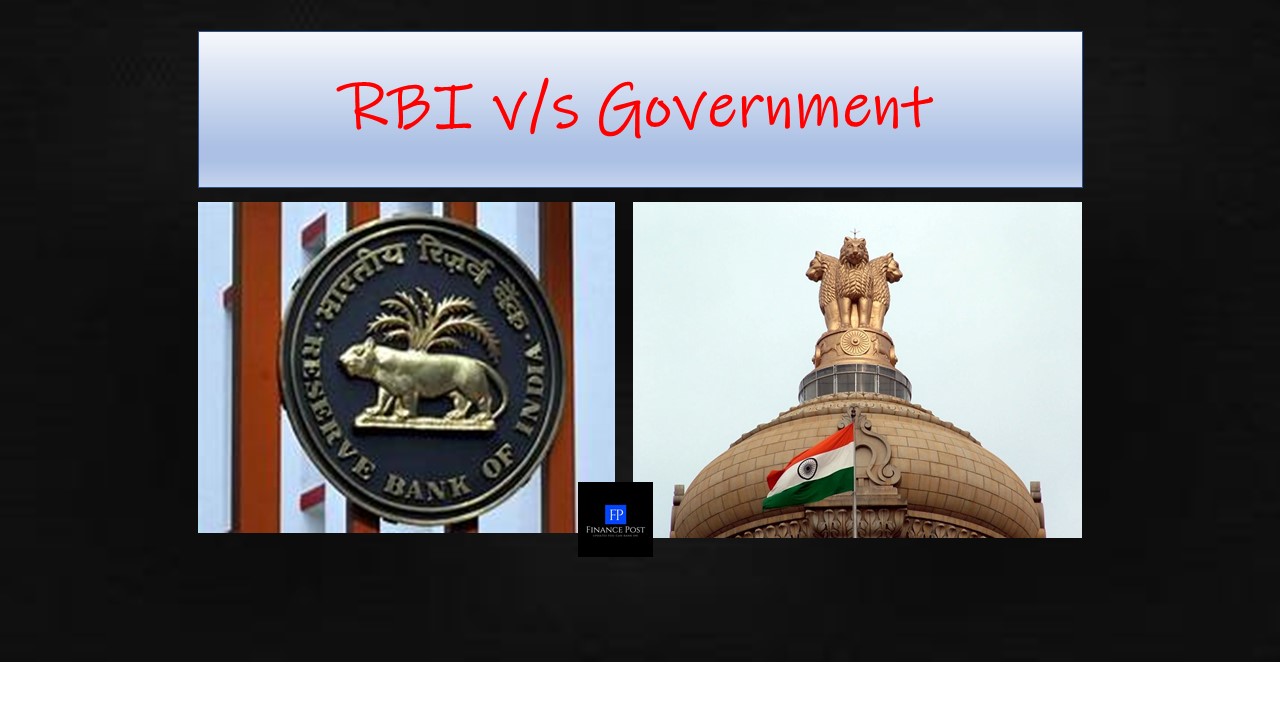
Last updated on May 15th, 2021 at 09:27 pm
RBI vs. Government
Another RBI Board Meeting within a week is expected to be held today i.e 29th October’18 to discuss several issues relating to PCA norms, NBFC, HFC, etc.
With the growing tension between the Reserve Bank of India and the Government of India & Finance Ministry, RBI Deputy Governor Viral Acharya raised concerns against Govt.’s attempt to hinder the freedom of the Central Bank. If India is looking for a stabilized financial and macroeconomic sector, then more regulatory & supervisory powers should be extended to RBI to clean up the Country’s banking system (State-run banks ). RBI vs. Government
RBI Deputy Governor Viral Acharya reiterated the Central bank’s stand on the issue & said “Without the imposition of PCA framework, some banks would have incurred even higher losses & required even more of taxpayer money for recapitalization.”
(Note: Government has taken control over the management of the IL&FS group on 1st October 2018 after series of payment defaults faced due to liquidity crisis.)
Finance Ministry & Government is of the view that stringent & strict PCA norms is making the credit crunch & liquidity crisis worse. As of now, many NBFC is looking to diversify their risk by selling the loan portfolios, BUT most of the public sector banks are not in a position to buy them as they are under the watch of the PCA framework.
Click here to understand NBFC Scare??? What exactly is the issue??
The government has put the blame of PNB scam, SBI Scam, UBI Scam & Karnataka Bank on RBI.
Outcomes of RBI Board Meeting dated 23rd October 2018 RBI vs. Government
A detailed discussion to relax the norms of the PCA framework considering the current scenario of plague/financial crisis in the banking sector & liquidity crisis faced by NBFCs was done.
The Board Meeting was attended by 18 members including RBI Governor-Urjit Patel, RBI Deputy Governor Viral Acharya, Financial Services Secretary-Rajiv Kumar, Economic Affairs Secretary- Subhash Chandra Garg, and other members.
RBI has refused any relaxation in guidelines/norms of the PCA framework. Any dilution in the PCA framework will make the weak banks accumulating more bad loans. And too many weak banks would only increase the cost in the long run & disturb the financial stability of the economy.
Why according to RBI relaxation is not warranted?
Efficient distribution of risks: If there is a reduction in lending by banks which are under the PCA framework, it is being efficiently compensated by higher lending by healthier banks.
Recap Bonds: Approx. 65% (i.e Rs 52,311 crore out of Rs 80,000 crore) of recap bonds issued to various public sector banks in the last fiscal were allotted to the 11 public sector banks which are under the PCA framework.
Non-performing assets: After the introduction of asset quality review, actual bad loans/non-performing assets were exposed which was not done until 2014. As there was no proper mechanism to identify or recognize the quality of an asset.
Erosion of capital: Banks under the PCA framework are prohibited from distributing dividends, remitting profits, management’s compensation & director’s fees. There is also a restriction on expansion and maintain higher provisions to cover the risk. This is done to stop further dilution or erosion of capital.
Lending Restriction: RBI imposes lending restriction only when it is essential to reduce the risk & bring the bank back to sound financial health.
Conclusion RBI vs. Government
Hence, the Reserve Bank of India is of the view that Banks are placed under the PCA framework after carefully assessing them on the parameters like capital ratios, asset quality, and profitability, etc. If there is a failure to meet any of the requirements, then RBI imposes PCA framework & restrictions thereon depending upon the level of default.
You may also like :
- What exactly is the issue behind the defaults in NBFC??
- PCA framework: RBI’s tool for Financial Stability
- What are Sanctions and how do they affect the USA, Iran, and India?
- Govt. invokes Sec 7 first time in the history of Independent India: Will RBI stop functioning independently?
- 50th GST Council Meeting - 11/07/2023
- GST Compliance Calendar of October 2023 - 01/04/2023
- GST sections amended in Finance Act 2023 - 27/03/2023
Disclaimer: The above content is for general info purpose only and does not constitute professional advice. The author/ website will not be liable for any inaccurate / incomplete information and any reliance you place on the content is strictly at your risk.
Follow us on Social Media by clicking below
Follow @financepost_in

Be the first to comment